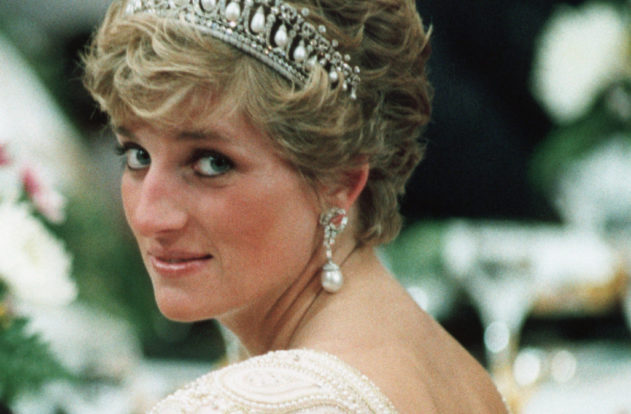If you were a symbol of anything to me, Diana, it was of the thin line women are supposed to walk, the weight we must bear without cracking.
Dearest Diana,
Last week, a friend of mine posed a question on her Facebook page: What’s the first major news story you can remember living through as a child? You don’t know what Facebook is, but I’d venture to say you wouldn’t like it much. I am in this location. I am doing this thing. Look at me. Were you alive today, it might be one more platform on which you were hunted.
My answer was the OJ Simpson trial, kicking off with the white Bronco chase that captivated my 6-year-old self, mesmerized at daycare, oblivious to what was actually happening. But the first major news story I remember understanding – and feeling devastated by – was your death in 1997.
Your funeral was on a Saturday in September, and my mother set our VCR to record the entire thing. She had gotten up at some ungodly hour in the morning 15 years earlier to watch your wedding, which took place just months after her own. This time she shuffled downstairs, her face already wet with tears. Though we sat next to each other on the couch, a private pain that I wouldn’t grasp until many years later sealed her away from me, and I was largely left to watch in silence.
Here is what I remember twisting my heart into a knot: The steady clomp of horses’ hooves as your casket was drawn through the streets of London. The mournful trailing of your sons behind it; your brother’s hand on Harry’s lower back. The card that read “Mummy” in a child’s script. Just recently, Newsweek reported that William and Harry were forced to walk that route. Their uncle was lied to, told that they “wanted to do it, which of course they didn’t.” I could almost feel your outrage reverberating from the heavens; you loved your boys so. You would have done anything to protect them, to give them the protection that you were never afforded.
After your friend Elton John’s tribute of a reworked “Candle in the Wind,” your brother delivered what is to this day one of the most beautiful eulogies I’ve ever heard. “She was a symbol of selfless humanity – a standard-barer for the rights of the truly downtrodden,” he said, calling to mind the photos of you visiting landmine victims in Sarajevo, touching AIDS sufferers with a gloveless hand. Many years later, I think of how many humanitarian “symbols” have followed in your footsteps and how much our world in 2017 cries out for them now.
I also think of the princess as symbol. Women like me grew up revering Disney princesses in ornate gowns, perfectly coiffed. They were preserved in towers, stunned into deep states of sleep, or literally silenced until a prince’s transformative forever-love revived and completed them. Did you believe, as a girl of 18, in such fairy tales? You let Princess Grace of Monaco teach you how to pose and smile as you awkwardly entered the royal world. You blossomed before our eyes into a style icon. And it wasn’t enough; the symbol couldn’t contain your pain, so when your husband criticized your weight, you found an eating disorder. When he neglected you, you threw yourself down the stairs.
Dress this way, pose this way. All the while remaining invisible in the places visibility mattered to you most. Watching you as I grew up was like watching a 3D movie without the glasses on. The picture is distinguishable, but something’s slightly off – a second set of lines softly mimics the original but never quite snaps into form.
Watching my mother watch you was a similar sensation; tracing a mirrored sadness. If you were a symbol of anything to me, Diana, it was of the thin line women are supposed to walk, the weight we must bear without cracking. Your public scrutiny was the portal through which I first saw how relentlessly women’s bodies are judged and mandated by others. Your marriage was what first alerted me to an asterisk on the end of “happily ever after.” And when you finally followed your heart to a man who truly loved you, the press followed the two of you to your deaths. The irony of your namesake did not escape your brother: “A girl given the name of the ancient goddess of hunting,” he said, “was, in the end, the most hunted person of the modern age.”
Today we have the privilege of learning about your life from the source. In the National Geographic documentary Diana: in Her Own Words, narrated by your interviews with James Colthurst, we not only hear the anguish in your voice but the smart, meditative analysis of your mental health that only you could have provided. Your inability to sleep or eat was a “symptom,” of a taxing marriage, you made clear, rather than “a cause.” You’d be so proud of your sons for facing these symptoms fearlessly with their charity Heads Together, which focuses on ending the stigma surrounding mental illness. Your humanitarian work reverberates above all else, as you would have wanted.
Twenty years after you left us, I want to join the world in thanking you for lending us your spirit and grace. Thank you for your transcendence of class, your reimagining of royalty as compassion for the otherwise overlooked. And thank you for your laughter, made all the more precious by your pain.
Chelsea Cristene is a communications associate and English professor based in Washington, DC. She has been published by the Good Men Project, Salon, xoJane, and MamaMia, and runs a film review blog, Catch Up, with fellow Role Reboot contributor Telaina Eriksen. Find her on Twitter.
Other Links:

